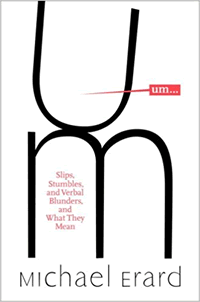
Here’s a recording in a mystery language.
Can you identify the language, and do you know where it’s spoken?

Here’s a recording in a mystery language.
Can you identify the language, and do you know where it’s spoken?
In English you play a game, but you don’t play a play. In Russian the words for to play and game come from the same root: играть (to play) and игра (game). To play a game is играть в игру.
I already knew the verb играть, but didn’t know that the word for a game was similar, until today.
игра́ть means to play; to act, to perform; to gamble; (of a storm) to rage; (of wine) to sparkle. It comes from the Proto-Slavic *jьgra (play, game).
игра́ means a game; a sport which is played; play (for amusement); acting, performance; role-playing; playing (a musical instrument). [source].
Related words include:
– игра́льный = playing
– игри́вый = playful
– игри́стый = sparkling (of wine)
– игрово́й = game, play, acting, playing
– игро́к = player, gambler
Words for game are the same or similar in other Slavic languages. However they have lost the initial i in most Western Slavic languages: hra (Czech & Slovak); gra (Polish); jhra, hra (Upper Sorbian); gra, igra (Lower Sorbian) [source].
| français | English | Cymraeg |
|---|---|---|
| la station métérorologique = weather station | gorsaf dywydd | |
| la station balnéaire | seaside resort | tref lan môr |
| la station de ski | ski resort | cyrchfan sgi |
| la station thermale | spa | tref ffynhonnau, sba, ffynhonfa |
| la station de lavage | car wash | golchfa geir, lle golchi ceir |
| l’accord (m) | deal (agreement) | bargen, cynnig |
| hors de portée | beyond/out of reach | allan o gyrraedd, y tu hwnt i’ch cyrraedd |
| à portée (de qn) | within reach (of sb) | o fewn cyrraedd (i rywun) |
| se remettre (de); se rétablir (de) | to recover (from illness) | gwella |
| vertical | vertical | unionsyth, fertigol |
| le kitesurfing | kitesurfing | barcudfyrddio |
| l’élan (m) | elk (European) | elc, cawrgarw |
| l’orignal (m) | moose (Canadian) | elc |
| crise des cinquante | midlife crisis | argyfwng canol oed |
| l’examen | (medical) check up | archwiliad |
| la caisse | crate (for bottles, china) | cawell, bocs rhwyllog, crât, crêt |
| le cageot | crate (for fruit, veg) | cawell, bocs rhwyllog, crât, crêt |
| la vis | screw | sgriw, hoelen |

Recently I’ve been making a lot of small improvements to Omniglot. An American gentleman from Michigan has very kindly been proofreading parts of my site, and sending me long lists of corrections and improvements. So far we’ve worked through the languages written with the Latin alphabet from A-J.
I’ve corrected errors, edited and improved language descriptions, re-done many alphabet charts, added links to the Excel spreadsheets I use to create the charts, and added sample texts and videos, if I can find them. The alphabet charts (and other images) scale to fit the size of the screen you’re using to view my site, and I try to make them legible even on small screens.
Many other people send me suggestions for corrections and improvements, and I welcome all your feedback. If you spot anything on Omniglot that needs correcting, changing or improving, do let me know.
By the way, the number of visitors to Omniglot has diminished somewhat recently. I don’t know why, but would be grateful if you could recommend to site to everyone you know who is interested in languages.

Here’s a recording in a mystery language.
Can you identify the language, and do you know where it’s spoken?
Last night I went to an excellent concert at the Pontio Arts Centre featuring the Royal Liverpool Philharmonic Orchestra and the brilliant harpsichordist, Mahan Esfahani.
As well as enjoying the concert, I started thinking about the word philharmonic – what it means, where it comes from, and why it features in the names of many orchestras.
According to Wiktionary, philharmonic means “appreciative of music, but especially to its performance” or “A full-size symphony orchestra”. It comes from the French, philharmonique, from the Italian filarmonico (loving harmony), from the Greek φίλος (phílos – dear, beloved) + αρμονικός (armonikós – harmonic, harmonious) [source].
The name philharmonic was adopted by the Royal Philharmonic Society, which was established in London on 6th February 1813 by a group of thirty professional musicians. Its aims were to promote performances of instrumental music, and to build an orchestra, which initially played at the Argyll Rooms on Regent Street. Before then there were no permanent orchestras in London. After the Society was formed, other orchestras started to the word philharmonic to their names.
The word orchestra comes from the Greek ὀρχήστρα (orchistra), which was the area in front of the stage in an ancient Greek theatre reserved for the chorus, and comes from the word ὀρχοῦμαι (orkhoûmai – to dance).
The word symphony (an extended piece of music of sophisticated structure, usually for orchestra) comes from the Old French simphonie (musical harmony; stringed instrument), from Latin symphonia (harmony, symphony; a kind of musical instrument), from Ancient Greek συμφωνία (sumphōnía – symphony; a concert of vocal or instrumental music; music; band, orchestra; type of musical instrument), from σῠν- (sun – with, together) + φωνή (phōnḗ – sound) [source].
Does anything strike you as odd about the title of this post?
I came across this wording today in a book by an American author, and immediately thought, “don’t you mean ‘for the past few years’?”. For me that would be a more natural way to express this. Several in this context just sounds wrong. Maybe it sounds natural and normal to you.
Several is defined on WordReference.com as:
1. being more than two but fewer than many (there’s nothing like precision, is there?)
2. separate; different
3. individual; respective
4. several persons or things; a few; some
Several comes from the Anglo-Norman several (separate), from the Medieval Latin sēparālis, from the Latin sēparāre (to separate).
| français | English | Cymraeg |
|---|---|---|
| sauter, sautiller, houblonner | to hop | hopian |
| la musaraigne | shrew | chwistlen, chwistl, llygoden goch |
| le rendez-vous | appointment | trefniad |
| le plâtre | plaster cast | cast plastr |
| l’accessoire | feature (of product, computer, etc) | nodwedd |
| la saillie | (mountain) ledge | sil, silff, ysgafell |
| la balançoire | (playground) swing | siglen |
| le toboggan | (playground) slide | sleid, sglefren, sglefr, llithren |
| le toboggan, la luge | toboggan, sledge | sled, tobogan |
| le toboggan de piscine | water slide | sleid ddŵr |
| euthanasier, (faire) piquer, faire abattre | to put down (an animal) | rhoi i gysgu, difa, lladd |
| le fusilier marin | marine (soldier) | môr-filwr |
| le marines | the Marines | y môr-filwyr |
| la rédaction | (school/college) essay | traethawd |
| mettre au lit, coucher | to put to bed | rhoi/dodi yn ei wely |
| tordre, tortiller | to twist | cyfrodeddu, cordeddu, crychu, plethu |
| se tordre le cheville / le poignet | to twist one’s ankle/wrist | troi’ch ffêr/arddwrn |
| la sueur | sweat | chwys |
| suer | to sweat | chwysu |
| le chewing-gun | chewing gum | gwm cnoi |

Here’s a recording in a mystery language.
Can you identify the language, and do you know where it’s spoken?

The title of this post comes from a book by Michael Erard that I’m currently reading: Um. . .: Slips, Stumbles, and Verbal Blunders, and What They Mean.
It’s an interesting book that discusses how we all tend to um and er (or uh) in speech, and get words mixed up, correct ourselves, and make various other verbal blunders. In ordinary everyday speech we tend to ignore such stumbles, unless they get in the way of communication. When we listen to people on the radio and TV, and giving formal speeches and lectures, we might notice such slips more, especially in the speeches of politicians.
The aesthetic of umlessness refers to the idea that formal speeches should be as um-free as possible. It is something that emerged in the early 20th century, especially with the invention of microphones, recording equipment, radio and TV. Before then, advice for public speaking and oratory, which goes back to ancient Greece, rarely mentions the need for umlessness.
Ums and ers have various functions in speech, which Erard discusses, and one scholar he interviewed said that ums and other verbal fillers are an essential part of speech – they add information about intentions and thoughts separate from the main meaning of what you’re saying.
Do you um and er/uh frequently? Does it depend on the context?
What verbal fillers are used in other languages?